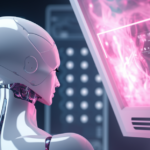While I was debugging some JavaScript quirks in a browser extension, my daughter entered my office to ask where the Nutella was hidden (it finishes way too quickly). After explaining my predicament, she nonchalantly suggested using Notion and ChatGPT to help me solve my coding problem.
Of course, she was right, and I was aware of these powerful tools. What struck me was how instinctively she knew that my problem could be resolved through the use of freely available AI, and she was able to demonstrate how.
This experience emphasized the significant impact of AI technology and its accessibility to students on the educational landscape. As AI becomes more integrated into our daily lives, educators face the challenge of adapting their teaching methods, including homework assignments, to better prepare students for a future driven by technology and automation.
But the big question is; do teachers need to change the way they prepare homework in light of AI’s growing influence on education?
The use of AI in education
AI has become an indispensable tool in education, assisting students with learning new concepts, providing personalized feedback, and even completing assignments. However, this technology also raises concerns about academic dishonesty, as students might misuse AI tools to circumvent the learning process. It is crucial to understand the implications of AI’s integration into education and its effects on traditional teaching practices.
Rethinking the traditional approach to homework
Homework has been a staple of the educational system, reinforcing learning, building skills, and developing good study habits. Yet, traditional homework practices have been criticized for being repetitive, time-consuming, and disconnected from students’ real-world experiences. With the growing influence of technology, particularly AI, there is a pressing need to reconsider the role of homework and its alignment with modern learning environments.
Embracing AI: The case for changing homework
As AI becomes more prevalent in education, teachers must embrace this new technology and adapt their teaching practices accordingly. By doing so, they can encourage the development of critical thinking and problem-solving skills that AI cannot easily replicate. This may involve designing assignments requiring collaboration, creativity, and higher-order thinking, ensuring students are equipped with competencies needed to thrive in a rapidly changing world.
Adapting homework strategies for the AI era
To adapt homework for the AI era, teachers can introduce AI-powered platforms, such as Duolingo for language learning or Wolfram Alpha for mathematics. These tools enhance students’ learning experiences by offering practice, instant feedback, and progress tracking.
Educators might create projects where students must apply their skills in real-world contexts, such as designing a budget plan for a fictional business or writing an alternative ending to a novel.
Creating assignments that involve analyzing the ethical implications of AI technology, such as researching and debating the pros and cons of using AI in job recruitment, helps students understand AI’s complexities and the importance of responsible use.
Instead of relying solely on traditional exams, teachers can incorporate assessment methods prioritizing understanding and application of knowledge, like presenting a project where students use AI-generated data to solve local environmental issues.
Addressing challenges and potential drawbacks
Adapting homework to the AI era is not without challenges. The digital divide and unequal access to AI technology may create disparities in educational opportunities for students from different socioeconomic backgrounds. Teachers may face increased stress and workload when integrating AI into their practices. It is essential to balance the benefits of AI with the importance of human interaction in learning, ensuring technology enhances, not replaces, the educator’s role.
The path towards future-ready education
As AI continues to transform education, teachers must adapt and evolve their approach to homework. By embracing technology and adjusting their teaching methods, educators can create more engaging and meaningful learning experiences for students. At the same time, teachers play a crucial role in guiding students through the ethical and responsible use of AI technology, helping them become informed and conscientious digital citizens in a technology-driven world.
Teachers and parents need to work towards a future where my daughter feels that using AI to power through tasks is not her “dirty little secret,” but an integral part of her education. By adapting our approach to homework, teachers can ensure that students are equipped with the skills and knowledge necessary to navigate and excel in an increasingly AI-driven world.









![Fei-Fei Li and a technical future - NewsBites.AI [Fei-Fei-li picture] looking optimistically into a technical future. Optimistic. Hopeful. Happy. Productive. --ar 16:9. Image courtesy of Midjourney, used with permission. All rights reserved.](https://newsbites.ai/wp-content/uploads/2023/05/Fei-Fei-Li-futuristic-1-150x150.png)
